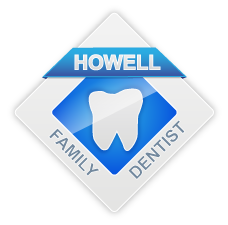6 Ways to Avoid Bad Breath
Avoid the garlic and brush your teeth—it’s National Fresh Breath Day! We know that unpleasant breath isn’t a glamorous topic, but someone has to address it. National Fresh Breath Day is a perfect time to talk about your smile and keep it smelling fresh.
Everyone gets self-conscious about their breath now and then, it’s normal! Bad breath can happen after a cup of coffee or a spicy or garlic-filled meal. In these instances, a stick of gum, mint, or a quick brushing and flossing takes care of it.
However, chronic bad breath is often a sign of poor oral hygiene. Millions of bacteria live below the gum line and on the tongue. If these areas are not cleaned regularly and thoroughly, bacteria will begin to thrive and cause unpleasant odors. Gross, huh?
Here’s a list of things you can do to keep your smile feeling (and smelling) fresh:
Proper Brushing and Flossing
The easiest and most effective thing you can do to prevent bad breath is practice good dental hygiene. Routine brushing and flossing will rid your teeth of plaque and bacteria that causes bad breath. Make sure to brush two to three times a day and floss daily to reach the areas your toothbrush can’t!
Replace Your Toothbrush
The American Dental Association (ADA) recommends that you replace your toothbrush every three to four months, or sooner if the bristles are frayed. If you don’t replace your toothbrush every three to four months, you’re taking away your first line of defense against bad breath.
Old toothbrushes are ineffective and hinder your efforts to remove plaque and other debris from your teeth. Both plaque and debris create an ideal place for bacteria to exist, which often leads to unpleasant breath. Don’t overuse your toothbrush—replace it often to ensure your teeth are getting the attention they need.
Use a Tongue Scraper
Bacteria can live anywhere in your mouth, even on your tongue. Unfortunately, brushing your tongue with a toothbrush isn’t always enough. Tongue scrapers are an effective way to remove unwanted bacteria and debris from your mouth. You can find these tools in the dental aisle of most food and drug stores.
Drink More Water
If you don’t produce enough saliva, you can develop a dry mouth. The most common example is the condition your mouth is in the morning after waking up. A dry mouth is also a side effect of many medications. Drinking water throughout the day promotes saliva production, which naturally defends your mouth against the germs that cause bad breath.
Eat Smelly Foods at Your Own Risk
Smells from foods like onions, garlic, spicy dishes, and even coffee can linger in your mouth for up to 72 hours after ingestion. We’re not saying you should cut these foods from your diet—but be aware that these odors can linger. Try brushing after each meal to avoid unpleasant breath.
Visit Your Dentist Twice a Year
Regular dental cleanings and annual x-rays of your teeth and gums will allow your dentist to screen for and treat any issues before they become bigger problems. If you’re experiencing frequent bad breath, talk to your dental team at your next visit to make sure you do not have an underlying issue.
If you have chronic bad breath, it could be a sign of gum disease or decay. Contact Howell Family Dentist to schedule an oral examination today!
